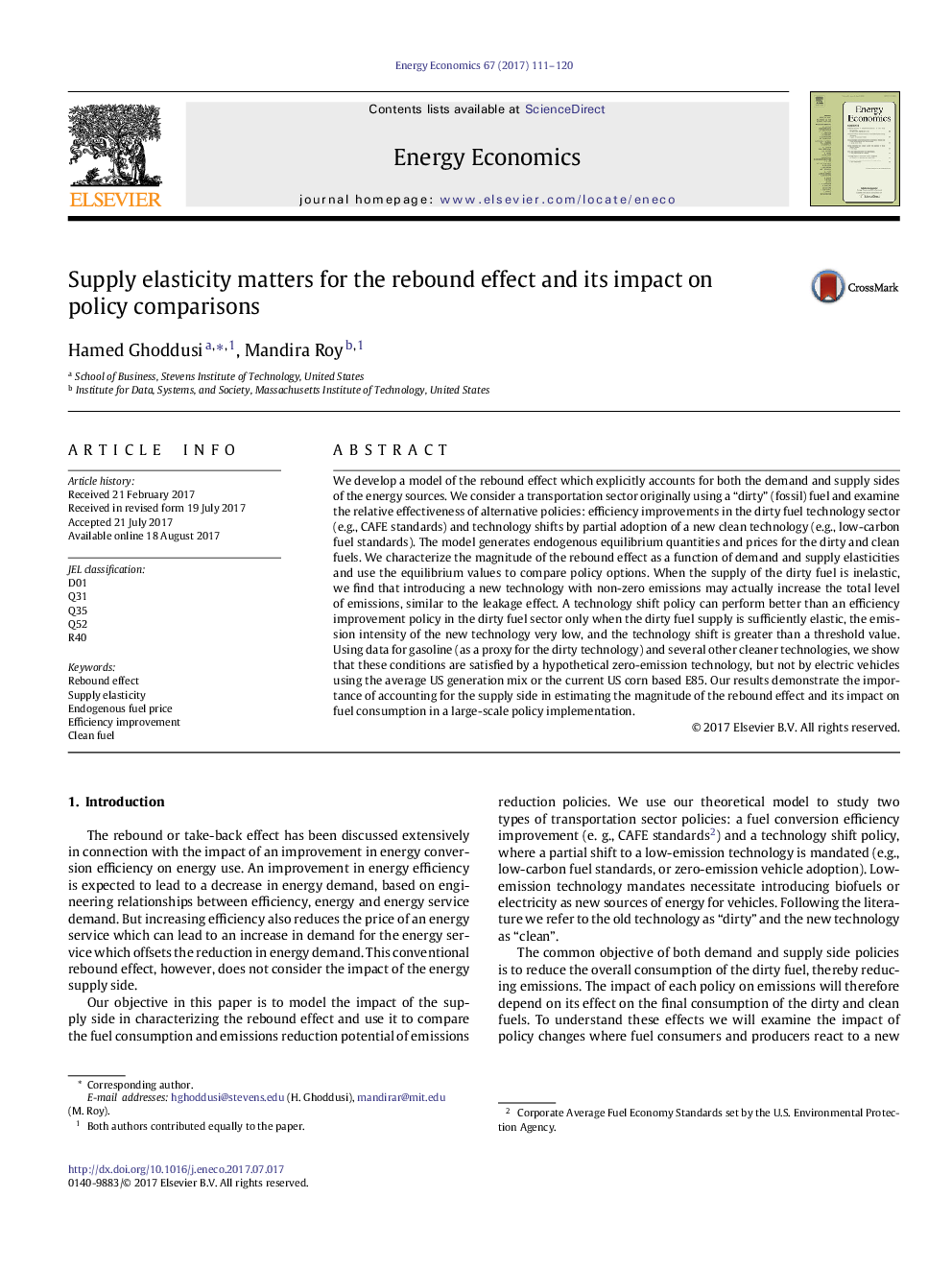| کد مقاله | کد نشریه | سال انتشار | مقاله انگلیسی | نسخه تمام متن |
|---|---|---|---|---|
| 5063598 | 1476697 | 2017 | 10 صفحه PDF | دانلود رایگان |
- A model of the rebound effect accounting for demand and supply sides
- The elasticity of supply side affects the magnitude of the rebound effect.
- Dirty fuel efficiency improvement and adoption of clean technology
- With inelastic supply of dirty fuel shifting to clean fuel may increase emissions.
- The importance of accounting for the supply side in the rebound estimations
We develop a model of the rebound effect which explicitly accounts for both the demand and supply sides of the energy sources. We consider a transportation sector originally using a “dirty” (fossil) fuel and examine the relative effectiveness of alternative policies: efficiency improvements in the dirty fuel technology sector (e.g., CAFE standards) and technology shifts by partial adoption of a new clean technology (e.g., low-carbon fuel standards). The model generates endogenous equilibrium quantities and prices for the dirty and clean fuels. We characterize the magnitude of the rebound effect as a function of demand and supply elasticities and use the equilibrium values to compare policy options. When the supply of the dirty fuel is inelastic, we find that introducing a new technology with non-zero emissions may actually increase the total level of emissions, similar to the leakage effect. A technology shift policy can perform better than an efficiency improvement policy in the dirty fuel sector only when the dirty fuel supply is sufficiently elastic, the emission intensity of the new technology very low, and the technology shift is greater than a threshold value. Using data for gasoline (as a proxy for the dirty technology) and several other cleaner technologies, we show that these conditions are satisfied by a hypothetical zero-emission technology, but not by electric vehicles using the average US generation mix or the current US corn based E85. Our results demonstrate the importance of accounting for the supply side in estimating the magnitude of the rebound effect and its impact on fuel consumption in a large-scale policy implementation.
Journal: Energy Economics - Volume 67, September 2017, Pages 111-120
